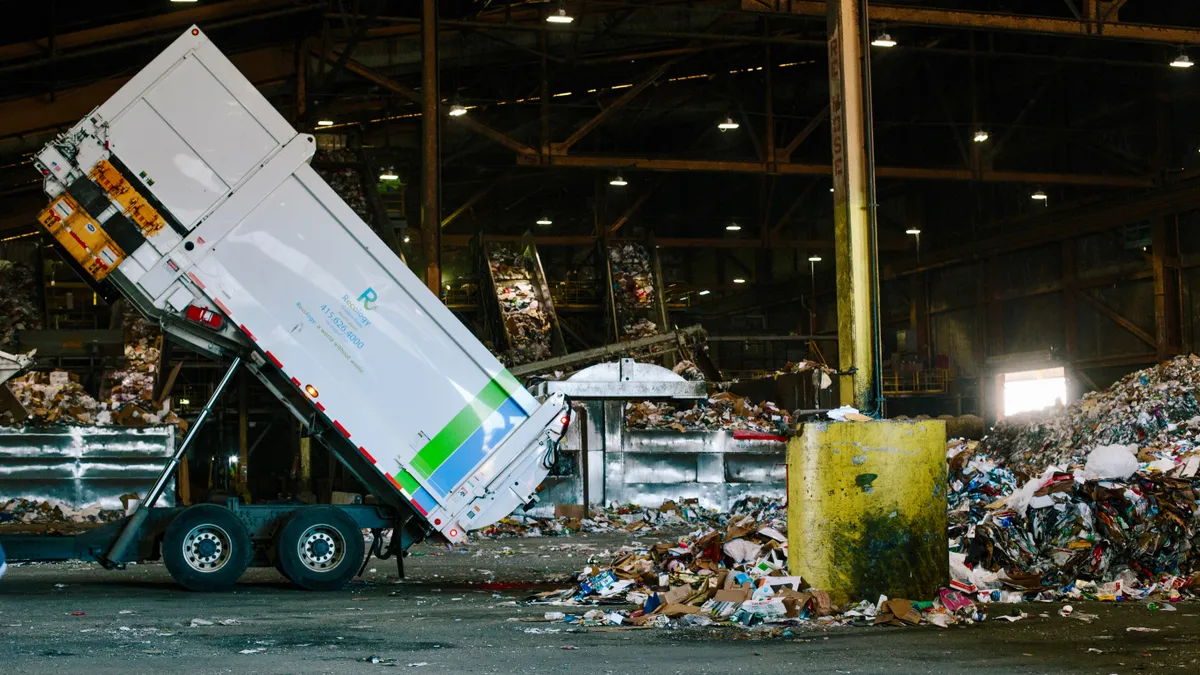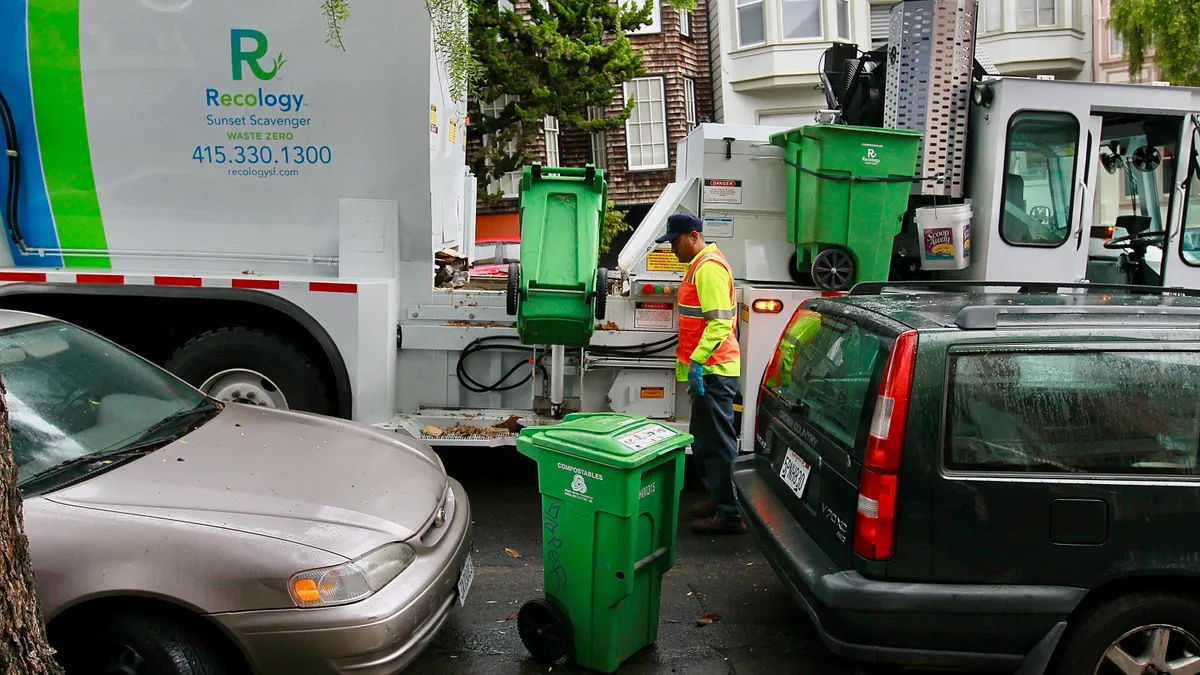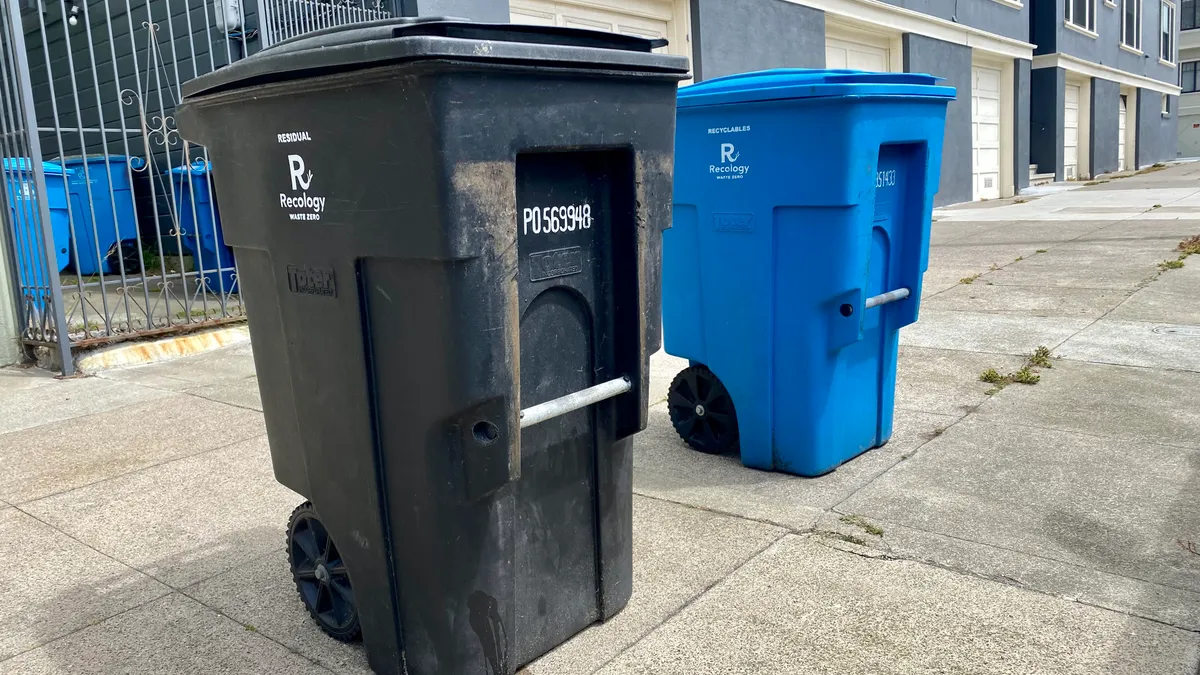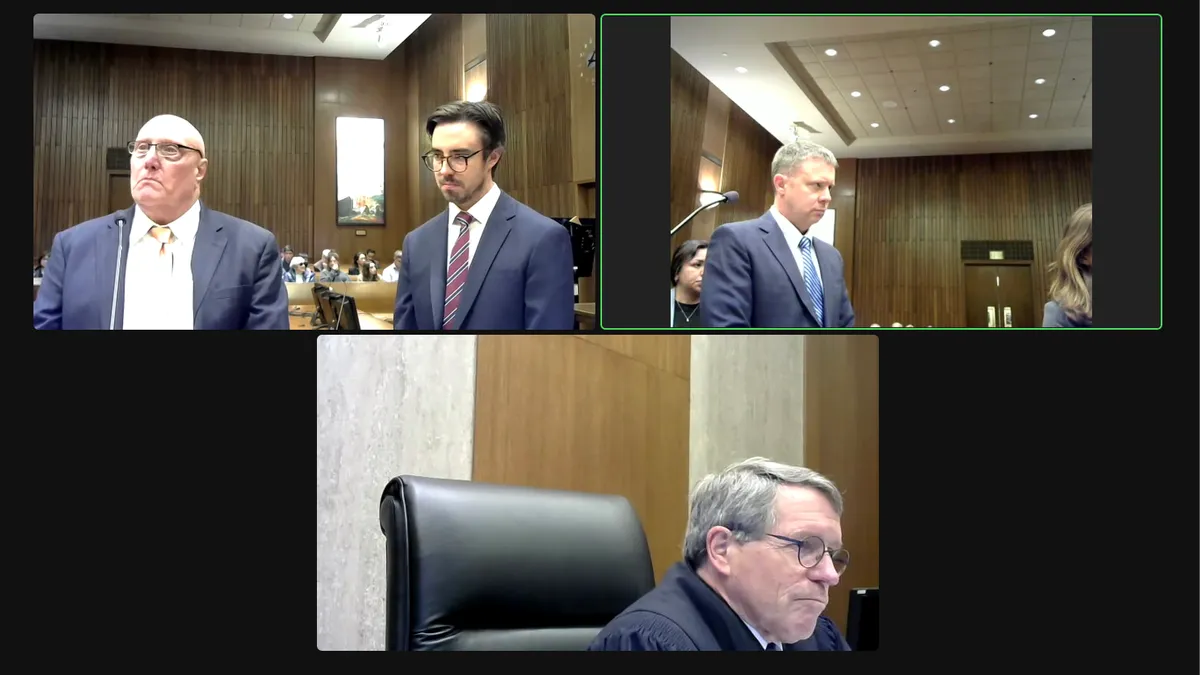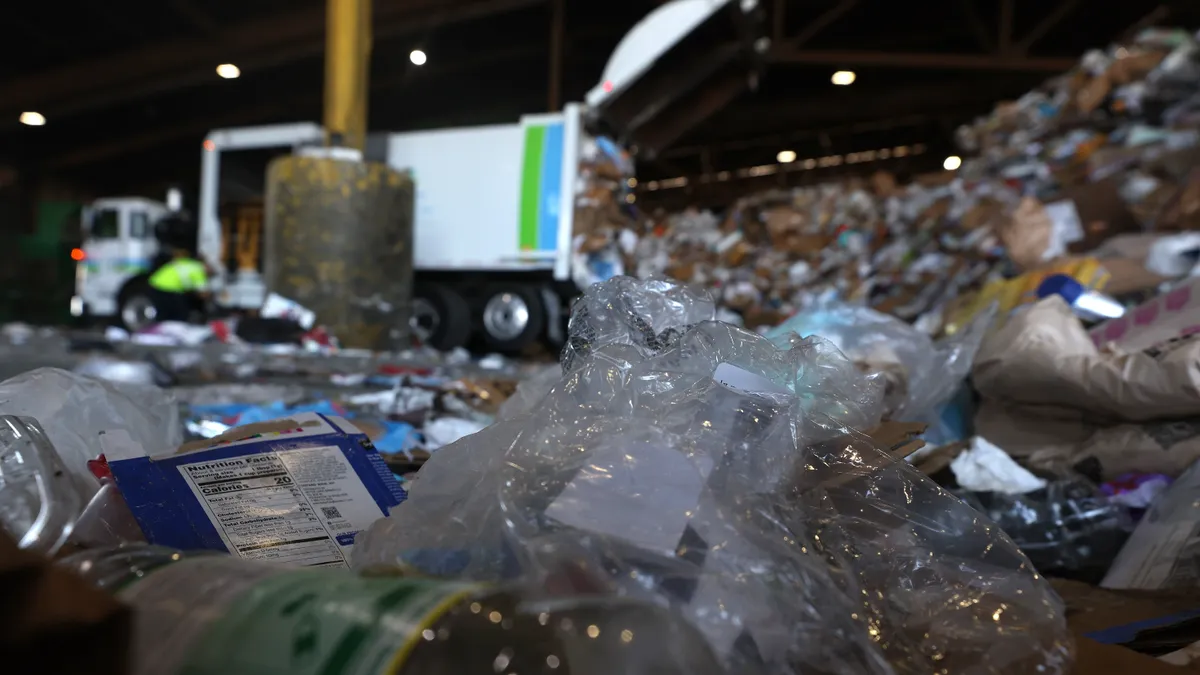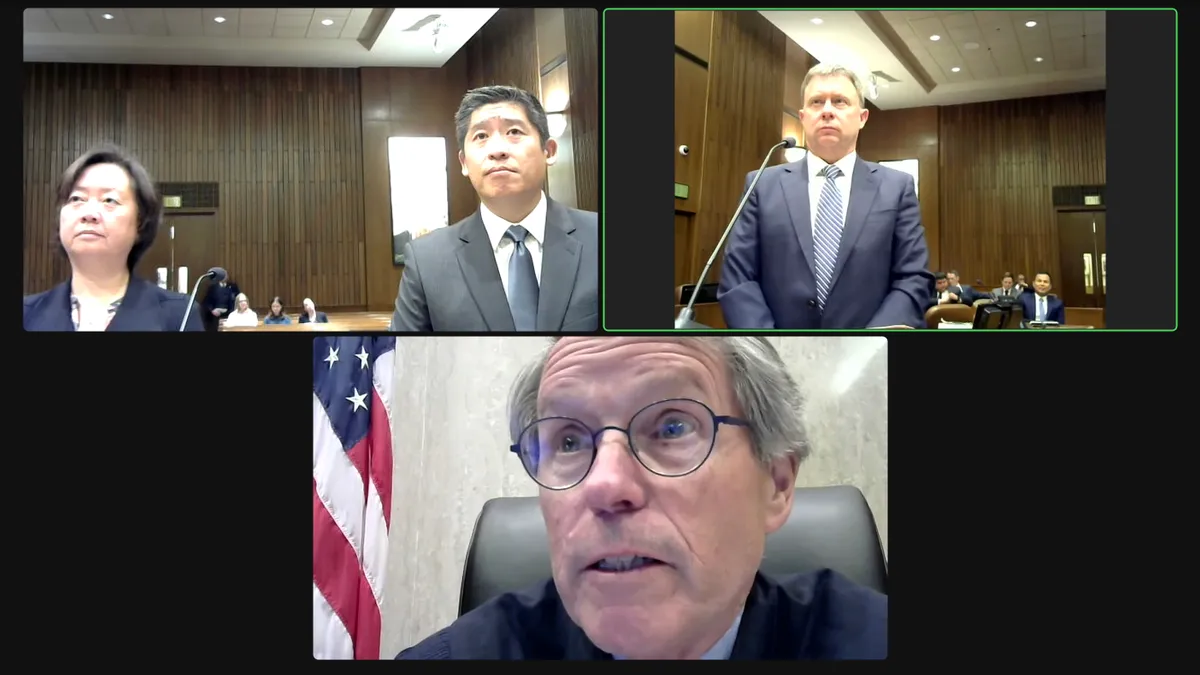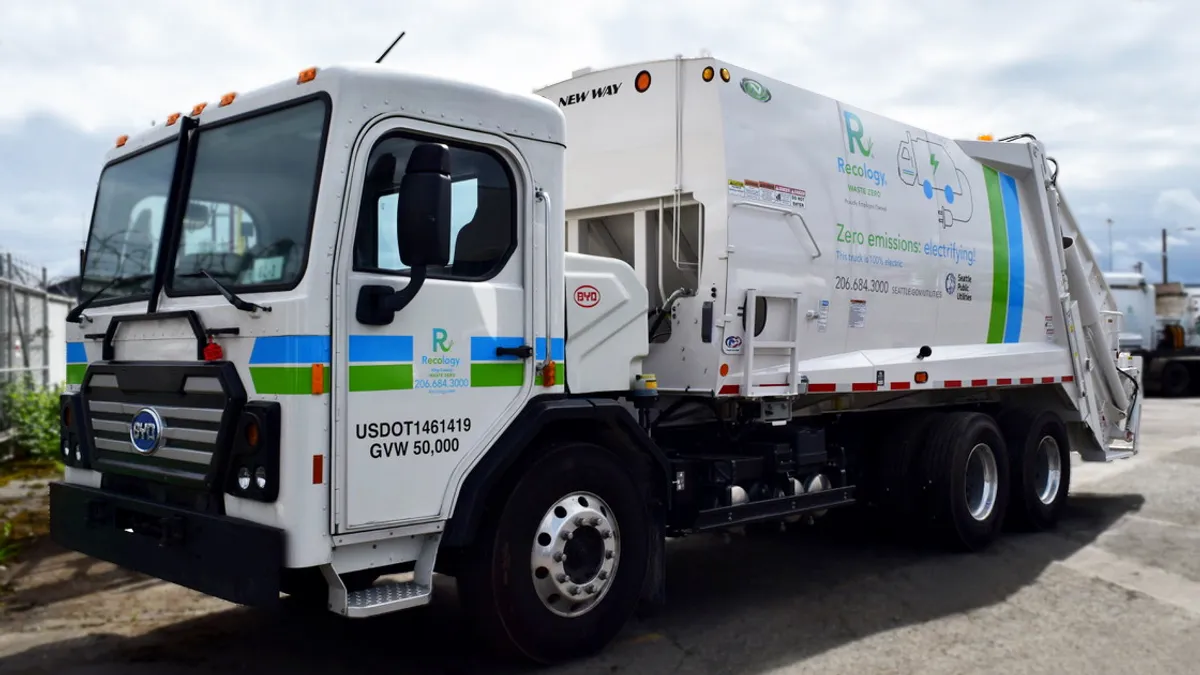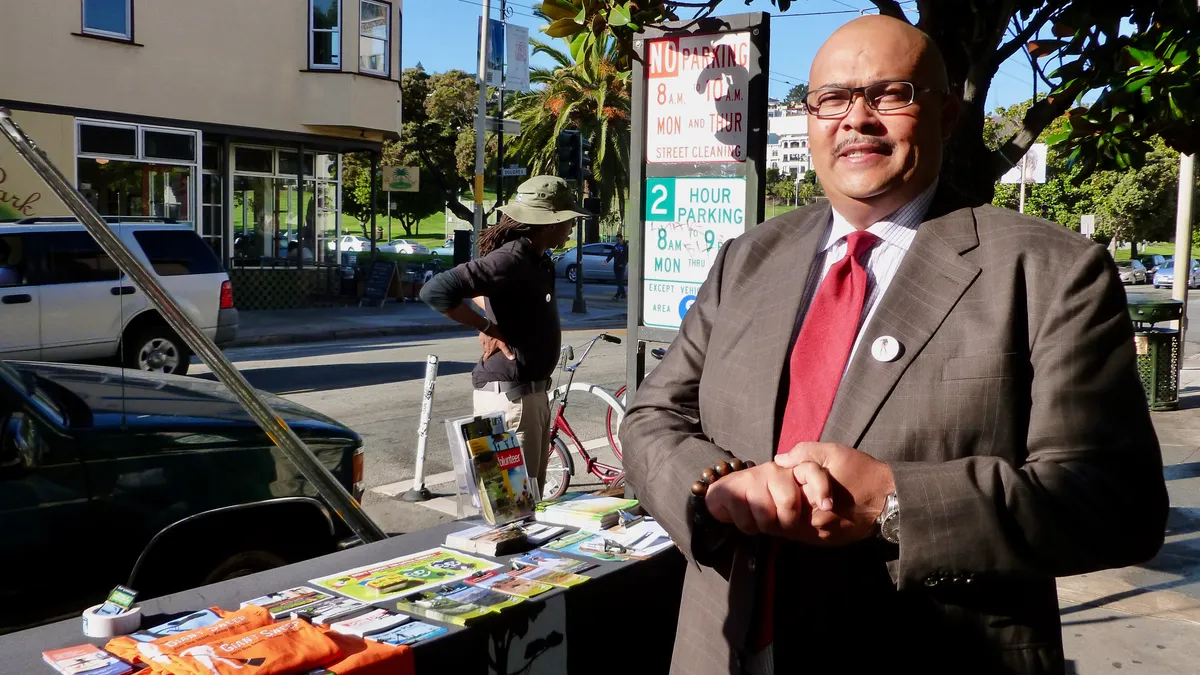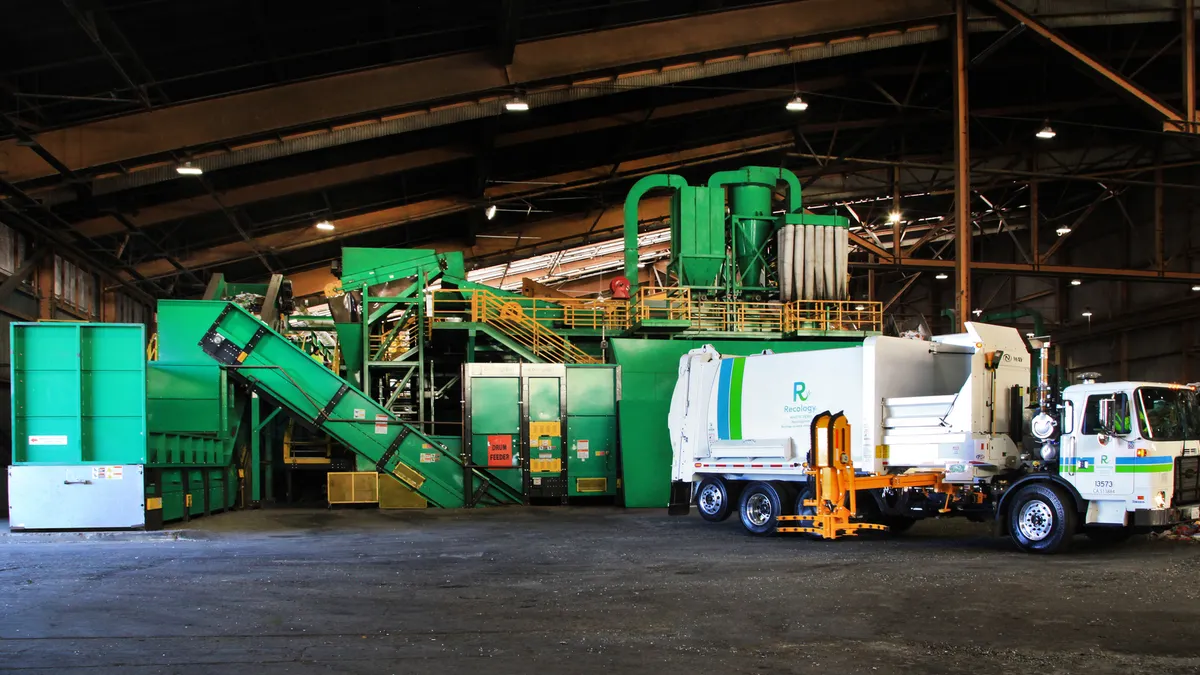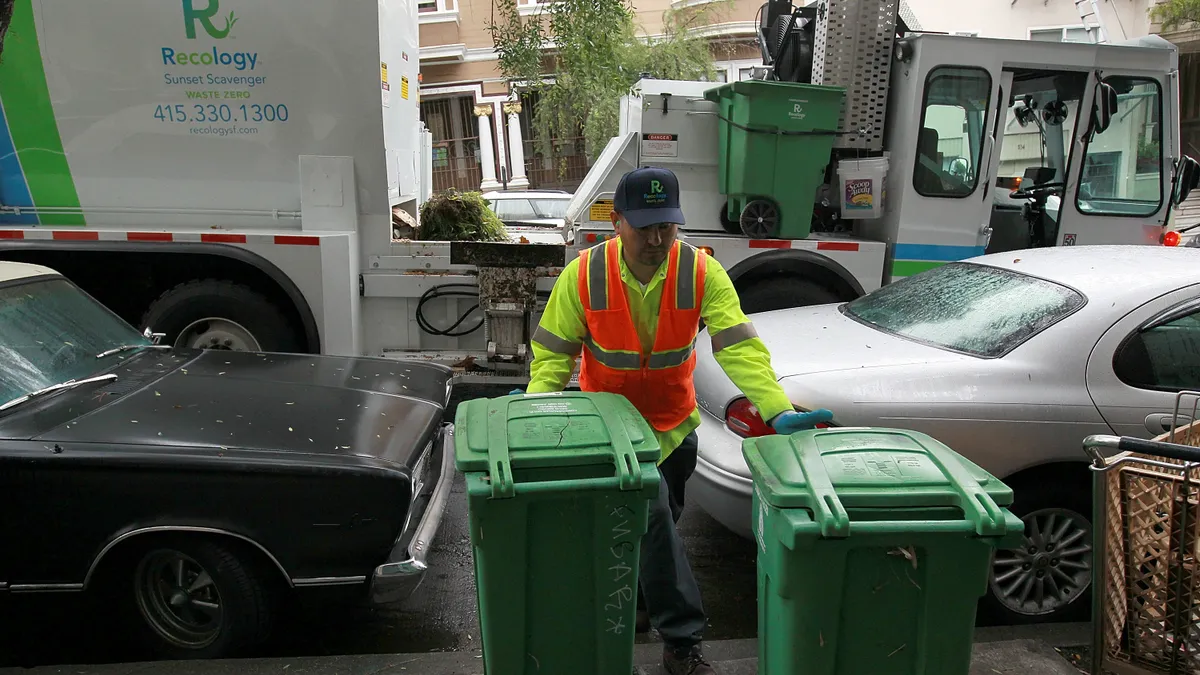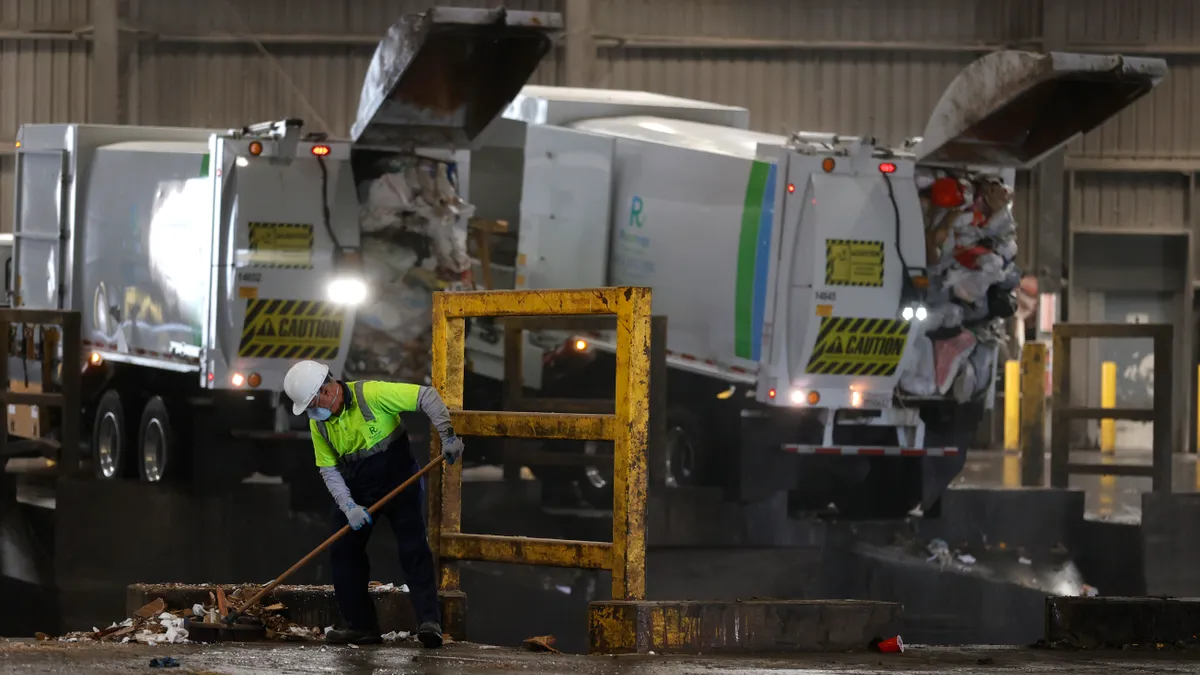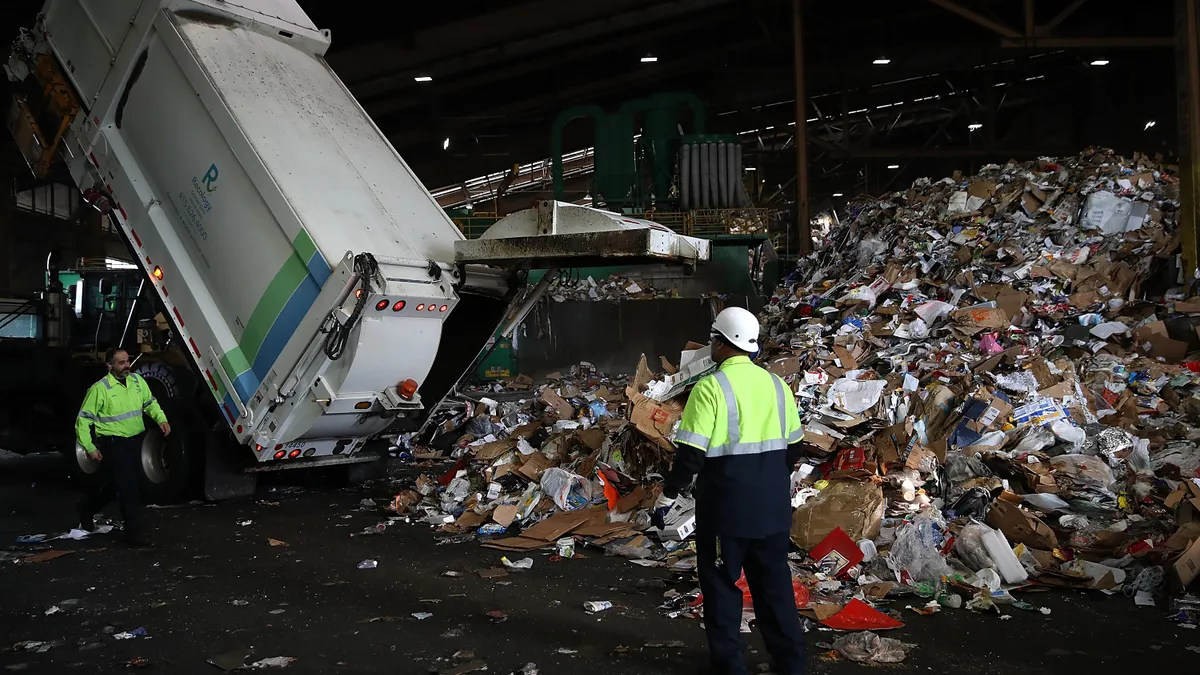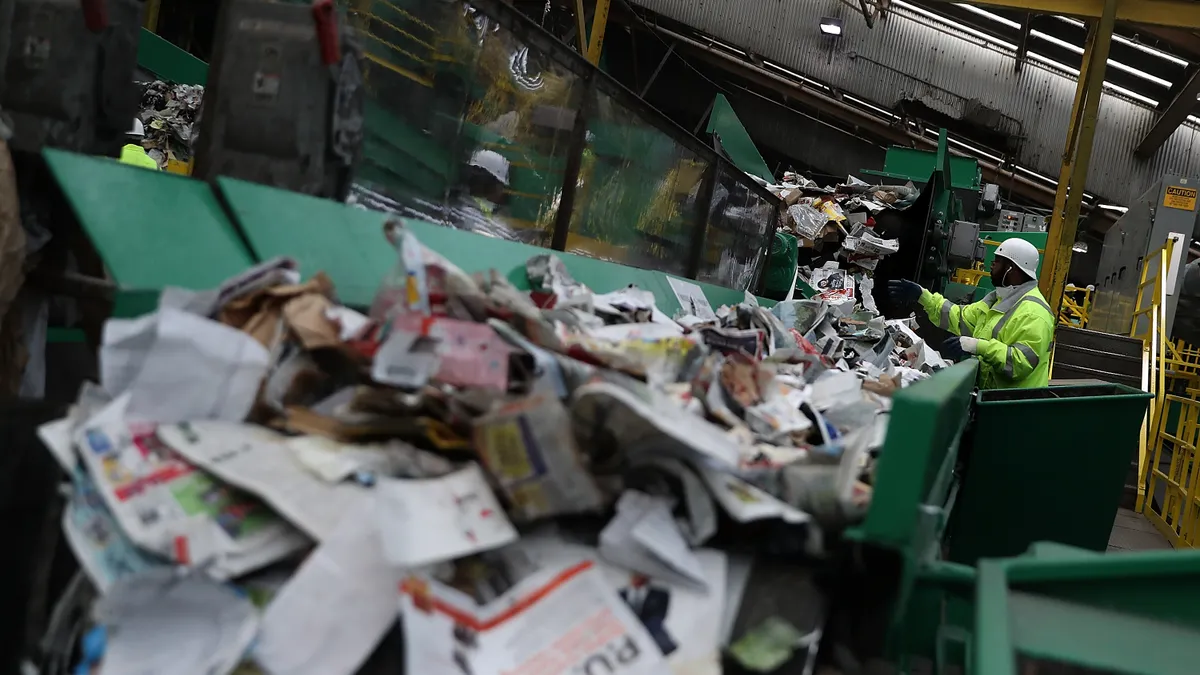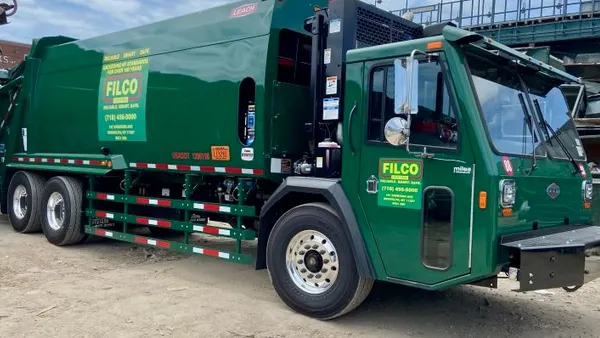A former Recology executive, Paul Giusti, has been charged with one count of bribery of a local official and one count of concealment of money laundering. The charges are part of a widening public corruption scandal in San Francisco.
The charges stem from alleged efforts to influence the former director of the San Francisco Department of Public Works (DPW) — Mohammed Nuru — via more than $1 million in bribes and other beneficial actions, according to the criminal complaint filed on Nov. 18. Nuru was arrested in January on corruption charges, and multiple others have been charged in his wake.
Giusti, government and community relations manager for Recology's area division from February 2012 to June 2020, was released on a $250,000 bond yesterday after his public first appearance before the U.S. District Court for the North District of California. He is the only person from Recology to be charged in this case to date, although an official for a consumer rights advocacy group predicted other senior company executives could also be charged.
Asked for comment, a company spokesperson referenced an investigation by independent board members that found Giusti "failed to live up to the ethical standards to which Recology holds itself." It subsequently "placed Mr. Giusti on unpaid leave and ended his employment in June."
San Francisco code prohibits any officer or employee of the city from soliciting or accepting a gift from a person or company "doing business with or seeking to do business with the department of the officer or employee." Recology's employee handbook explicitly prohibits employees from giving any loan, money or other valuable good or service to any public or private official to influence any official act, according to the complaint.
Last week's announcement by U.S. Attorney David Anderson, the Internal Revenue Service and Federal Bureau of Investigation alleges former employees at Recology and DPW flouted those guidelines over the course of many years.
"If the allegations are true, and the evidence so far suggests so, this is a classic case of money laundering and bribery," Craig Holman, government affairs lobbyist at the nonprofit Public Citizen, said in an email. "In this case, the money was laundered through nonprofit organizations which have very minimal disclosure requirements of their funding sources and expenditures. It is about as perfect of an illegal bribery scheme as can be concocted, which explains why it went on for years without detection."
A long relationship
Recology's government-sanctioned monopoly in the San Francisco market is essentially unparalleled among major U.S. cities for waste and recycling service. This lock on residential waste collection service dates back to a 1932 ordinance establishing 97 exclusive permits, which were all eventually acquired by a prior iteration of the company. Various attempts to overturn the arrangement, including a 2012 ballot initiative, have never been successful. The 100% employee-owned company was most recently rebranded from Norcal Waste Systems to Recology in 2009.
This system relies on good relationships with the city, and during his employment Giusti was allegedly a key player in directing funds or favors to Nuru in exchange for favorable treatment.
The four main methods, according to the complaint, included increasingly larger annual donations to a nonprofit that paid for DPW holiday parties; more than $1 million in donations passed between other nonprofits to accounts controlled by Nuru; assistance getting Nuru's son multiple jobs, and payment for a DPW employee's funeral via a nonprofit.
Nuru had a strong say in rate change approvals, including for residential collection service. Residential rates also inform rates for Recology's service at commercial and government locations. Because the city's Refuse Collection and Disposal Rate Board relies in part on the DPW director's advice, investigators say the role "holds enormous power over this process."
This dynamic meant "Recology had a regular, ongoing need for Nuru's assistance and approval." Per an email quoted in the complaint from an unnamed, high-level Recology executive: "Needless to say, keeping him happy is important."
The largest effort allegedly facilitated by Giusti was the donation of 35 payments worth a collective $1.03 million to a nonprofit ostensibly responsible for a DPW anti-litter program called Giant Sweep. The majority of this money, donated between 2013 and 2019, went to a second nonprofit investigators said "it was deposited into accounts that Nuru used as a slush fund for his professional benefit."
The complaint says the start of these donations appears to be tied to Recology's 2013 rate increase application. Recology also donated to the second nonprofit for other street cleaning activities, in a complex series of transactions. Area news site Mission Local delved into these transactions among the nonprofits, and Recology's sizable presence in their accounts, in October.
The company said it first learned investigators were looking at these two entities earlier this year, giving "full cooperation" and bringing in outside experts to "improve the company's compliance policies, and began re-training all relevant employees."
"Recology has for more than a decade been a regular donor to San Francisco Clean City Coalition and the San Francisco Parks Alliance in support of their efforts to clean, beautify, and expand access to the City's parks and public spaces. We consider this kind of support to be part of being a good corporate citizen, and we fully expect all resources to be put to appropriate uses on behalf of the people of San Francisco," said company spokesperson Robert Reed in a statement. "Nevertheless, as a result of this matter, we are taking a hard look at our practice of providing financial support to community-based organizations. However, we must state unequivocally that Recology did not provide a stream of benefits worth $1 million to the former Director of San Francisco Public Works. That is not who we are."
Starting in 2015, as Recology began preparing for another rate increase application, per the complaint, Giusti also assisted Nuru's son in getting a job with the company in various stints. During this period, the complaint notes, Nuru approved the company's request to draw $10 million from city-managed Zero Waste Incentive Funds for capital expenses.
Recology fired Nuru's son in June 2017 during the final stages of the rate approval process, reportedly due to concerns about bad optics. Giusti moved quickly to get the son an internship at a nonprofit that was later compensated by Recology via a donation. Following a detailed review of public comments, Nuru recommended the rate board approve the increases and it did so that month.
Giusti continued to play a close role in maintaining the son's internship position into 2018, despite ongoing and serious performance issues, according to the complaint.
Other moves taken ahead of the 2017 rate increase included Recology covering a DPW employee's funeral costs, via a nonprofit donation, and a multi-year pattern of annual donations to a separate nonprofit dedicated to giving "underprivileged children the opportunity to experience baseball." That latter group, the Lefty O'Douls Foundation for Kids, used funds to pay for Nuru's "increasingly extravagant holiday party."
An outgoing message on the foundation's phone line indicated that it could not receive incoming messages while its website appeared to be inactive. Former leader Nick Bovis, who owned a restaurant by the same name, was arrested in January and pled guilty to honest services fraud in May.
Recology's initial donation to the foundation came shortly after Giusti's first meeting with DPW about the rate increase application, in December 2016. The donations continued each year, growing at Nuru's request, according to the complaint. One allegedly helped secure Nuru's assistance in pushing a 2018 tip fee increase for "materials such as asphalt and concrete" at a Recology facility.
Regular price increases are not uncommon in the industry, and Recology cited a range of standard factors in its 2017 application such as higher labor expenses, upcoming capital costs and a new landfill agreement. Yet investigators make a case that Recology was getting relatively little pushback for these requests — not always the case in certain markets — and had the tacit backing of its regulator, Nuru, throughout.
According to the complaint, the average 20.98% rate increase for collection service at residential homes and apartment buildings boosted Recology's annual rate revenue to $351 million for the 2018 fiscal year — as compared to $289 million the prior year.
One group that testified against the 2017 rate increase over cost concerns, the Small Property Owners of San Francisco Institute, said broadly that local procurement decisions do not have a good reputation for transparency.
"It's just part of the culture of some of the city departments that deal with public contracts and it's very troubling," said President Noni Richen.
She described Giusti and Nuru as familiar, friendly presences at local meetings, both helping with community projects at times, but added "I'm not surprised at all and I don't think anyone else is" about the charges. At the same time, Richen spoke highly of Recology's frontline workers.
"Everybody loves their Recology guy," she said. "It's disappointing that they have such great people facing the public and then this is going on higher up, we think."
What's next
As more details of the scandal unfold, another relevant development is the approval of a ballot initiative on Nov. 3 that some supporters said could help prevent future corruption issues. The initiative will lead to the creation of a Department of Sanitation and Streets, taking on certain duties from DPW. While that does not include contracting, the initiative also approved the creation of multiple new commissions to oversee agency operations — including a citizen oversight commission that proponents say will help "investigate corruption."
In the meantime, the ongoing legal process could yield further revelations.
According to Holman of Public Citizen, bribery schemes involving nonprofits are "very, very difficult to uncover" and this may indicate someone with direct knowledge — possibly Nuru — has been cooperating. The complaint also lays out how multiple other Recology executives were aware of, and at times involved with, Giusti's actions.
"The charges and penalties are severe," Holman said of what Giusti faces. "The same fate likely awaits other senior executives at Recology."
Following yesterday's hearing, a warrant issued for Giusti's arrest was expected to be recalled and he agreed to surrender his passport. The former Recology employee is facing up to 10 years in prison for the bribery charges and 20 years for the laundering charges, plus hundreds of thousands of dollars in fines. Giusti's next court appearance is scheduled for Jan. 25.

